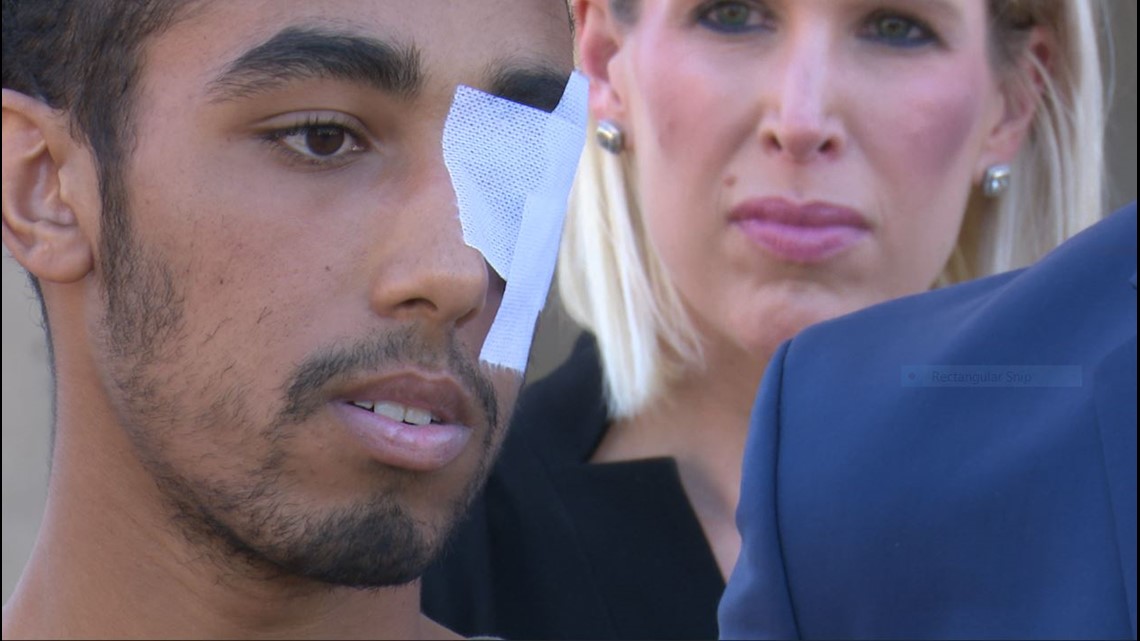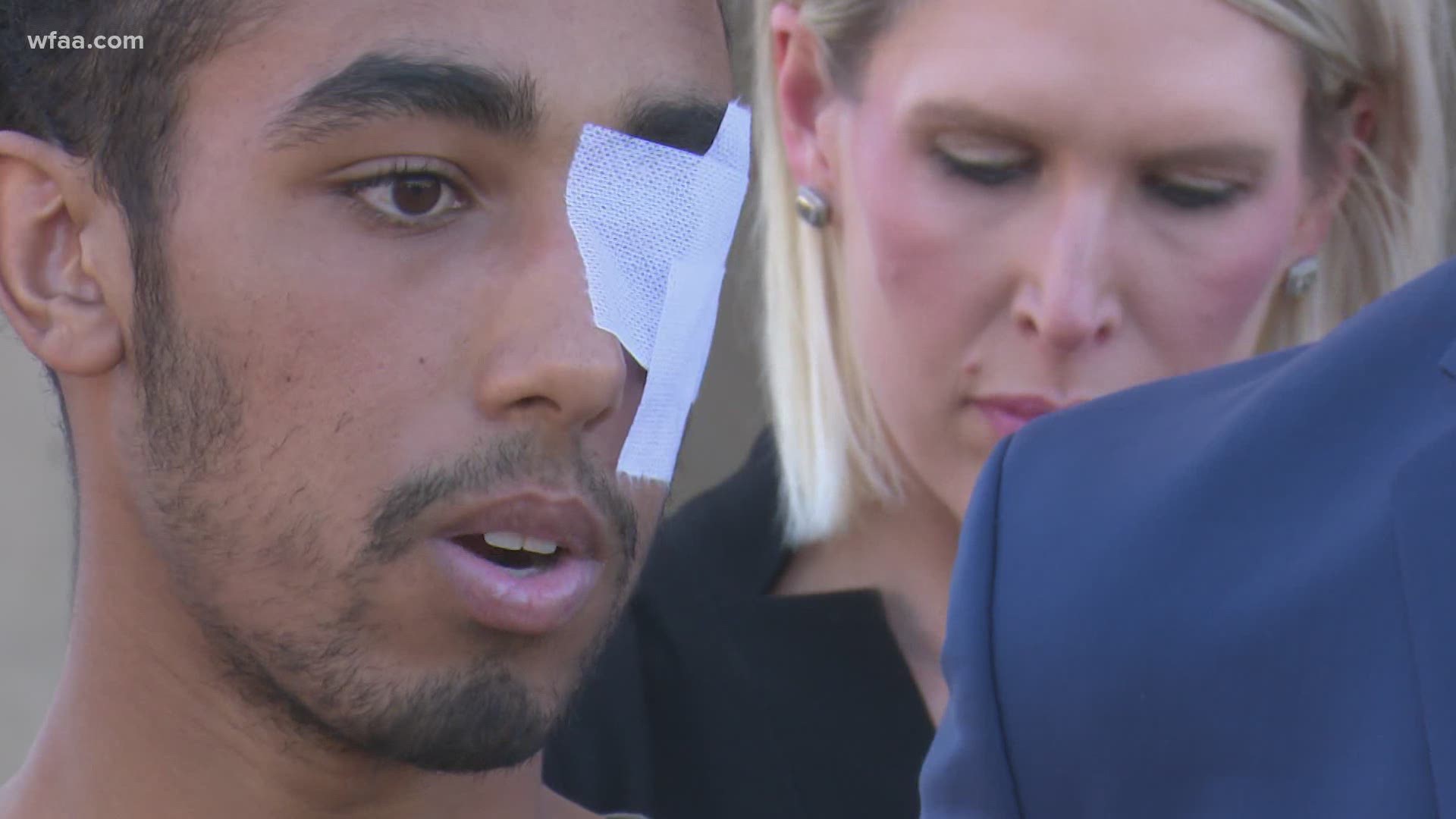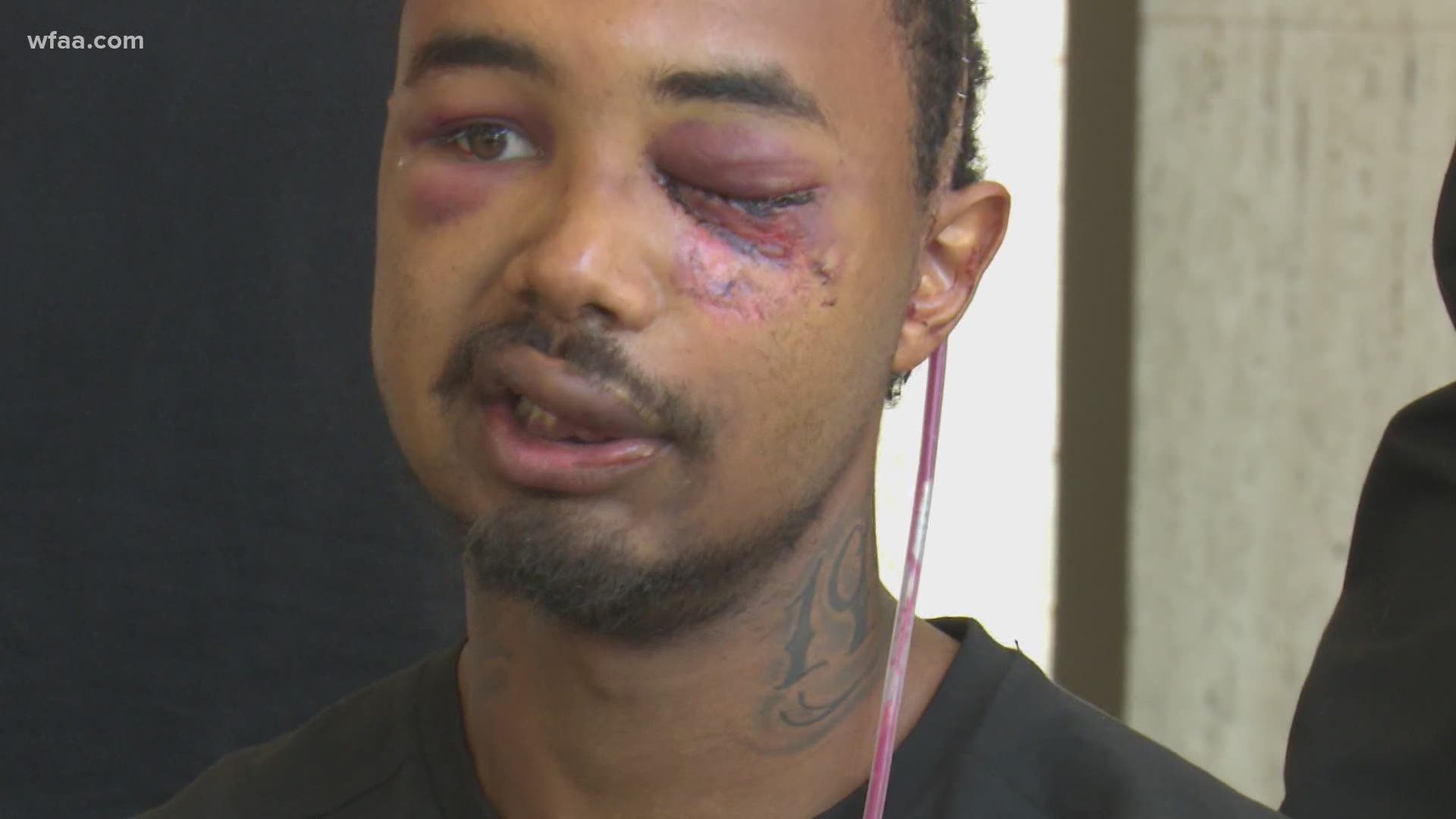DALLAS — With multiple people injured, reportedly by police using "less lethal" weapons during the recent protests and rioting in downtown Dallas, attorneys filed a lawsuit against the City of Dallas Thursday, and asked for a temporary restraining order to stop the use of the crowd control devices they believe are responsible.
Vincent Doyle was recording video with his cellphone late Saturday, May 30. It shows him backing away from a line of police officers as they issue orders for crowds to disperse.
"I remember seeing his laser and I remember ducking his laser, and I was like are you trying to shoot at me," the 21-year-old amateur photographer said. "And then all of a sudden it was just boom! I thought I had got shot for real."
In the video, he drops to the ground, blood streaming from his face from a direct hit by what he believes as a less-lethal "sponge round."
He suffered two large cuts under his left eye, a broken cheekbone, and now two weeks later still has limited vision in that eye.


The legal actions are also filed in the name of Tasia Williams. The 27-year-old was one of the estimated 700 protesters on the Margaret Hunt Hill Bridge the night of June 1. She says she was walking on the bridge in a peaceful protest when officers corralled marchers on the bridge and shot her in the thigh with a rubber projectile.
RELATED: Protesters detained after blocking traffic on Margaret Hunt Hill Bridge in Dallas Monday night
"It's hard for me to sleep not only because of my injury, but because I keep playing it over and over in my head thinking it could have been worse," she said.
"They have been shot while peacefully protesting. These are non-threatening individuals," said attorney Daniel Dailey.
"It is a call for a change and that change must start today," said attorney George Oginni.
"They were not out here causing any problems, and they don't deserve to be dealing with what they are dealing with today," added attorney Daryl Washington.
"Police say that they need to use tear gas and rubber bullets as tools to force a crowd to leave an area," said co-lead counsel in the case, Michelle Simpson Tuegel. "But when they are being used against protesters who have already been trapped and have no way to leave, these are no longer tools of crowd control. They are instruments of torture."
Dallas police, and a spokesperson for the City of Dallas, say they are aware of the legal actions.
The Dallas Police Department sent the following response:
"The Dallas Police Department is aware of the litigation being filed regarding the use of non-lethal alternatives. The City Attorney's Office is currently reviewing the TRO; therefore, any questions should be directed to their office.
In the meantime, it is the department's policy to resolve incidents requiring law enforcement intervention in as humane and safe a manner as reasonably possible."
But Sheldon Smith, the president of the Black Police Association, was more direct.
"We support citizens right to protest," he said. "But when you take less lethal away, what is left? If you take that option off, I think you're endangering, actually endangering African American males because if the only option is a firearm, then we know what that result is going to be."
There are multiple cases under investigation now of Dallas protesters hit in the face with less-lethal projectiles.
Brandon Saenz, 26, was also injured the afternoon of March 30 by a suspected "sponge round" projectile. He suffered so much damage that his left eye had to be removed. He is now out of the hospital and recovering with multiple additional surgeries expected.
As for Doyle, he has no promises his full vision will return.
"I'm just trying to figure out where I go from here really," he said.
Police and their critics are trying to figure that out too.
More on WFAA:
- Dallas police oversight board calls for review of use of force, protest policies
- Dallas City Council grills police chief about officers' use of force during local protests
- New Dallas police policies called 'first step' on long journey to change
- Will protests bring police reform? Texas race relations experts, legislators weigh in


